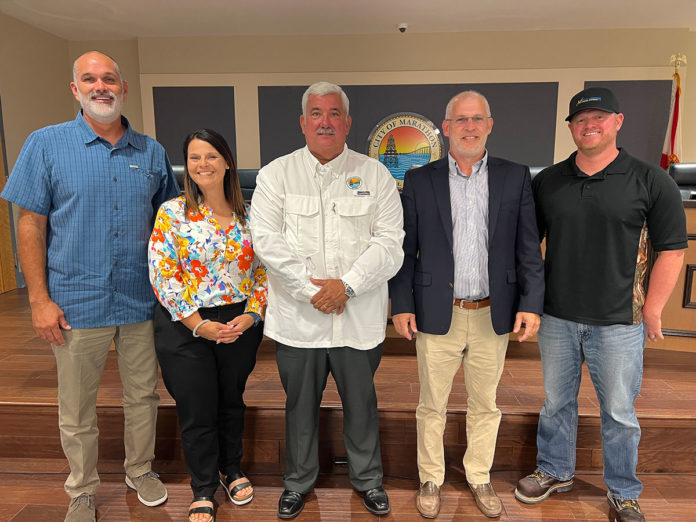
A revisited debate on the use of emergency housing allocations sent the new-look Marathon City Council off to a running start on Nov. 15.
The evening began with a changing of the guard, as the council bid farewell to former mayor John Bartus, vice mayor Dan Zieg and councilman Steve Cook while swearing in elected council members Lynn Landry, Robyn Still, Jeff Smith and Kenny Matlock. With unanimous votes, the new council appointed Gonzalez as Marathon’s next mayor, with Still to serve as vice mayor.
In his farewell address, Cook provided the new council with a list of his greatest lessons throughout his six years of service, urging them to do “what is right, not what is popular” and warning of the difference between “criticism and poison” on social media.
“Thank you for allowing me to serve this community,” he said. “I’m better for it, and I hope the city is as well.”
“I want to thank the people of Marathon for trusting me and believing in me,” said Zieg. “There’s been some discussion over the course of the past few years about individuals not getting what they wanted. … The rule up here with the council is that we have to make decisions based on the good of the city. Sometimes that aids individuals, sometimes it does not. But do what is right, and make the best decisions for the city. And I think over the past few years, we have done that.”
The full text of Bartus’ address may be found on page 17 of this paper.
In a meeting largely filled with introductions to the city’s various departments, a renewed discussion of the use of Marathon’s administrative relief building allocations – set aside by the city for use in special circumstances – was the first topic of consequence for the new council.
Gonzalez reintroduced a motion first proposed by Bartus at the council’s special call meeting on Sept. 21. Originally defeated by a 4-1 vote, the motion proposed to grant six of the city’s administrative relief allocations in order to allow official completion of affordable housing units in the La Palma development on 104th Street Ocean. Nearly complete, the development’s original building allocations were revoked as part of the 300 affordable units deemed illegal in an Aug. 3 opinion handed down by Florida’s Third District Court of Appeal. The city has filed for the case to be heard by Florida’s Supreme Court.
“The challenge has been raised by a no-growth advocate … including essential workforce housing,” said Gonzalez. “The city’s commitment is to see six families in homes that are essentially built.”
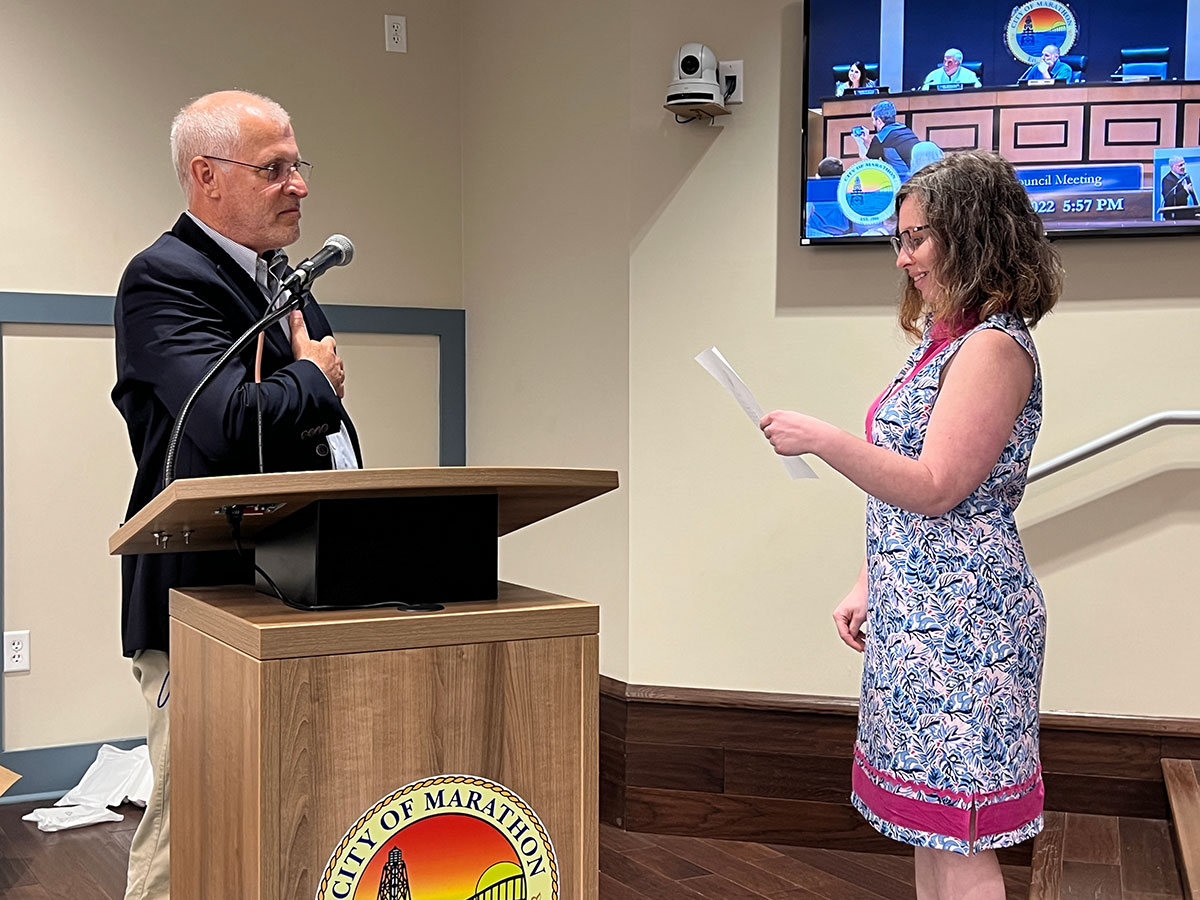
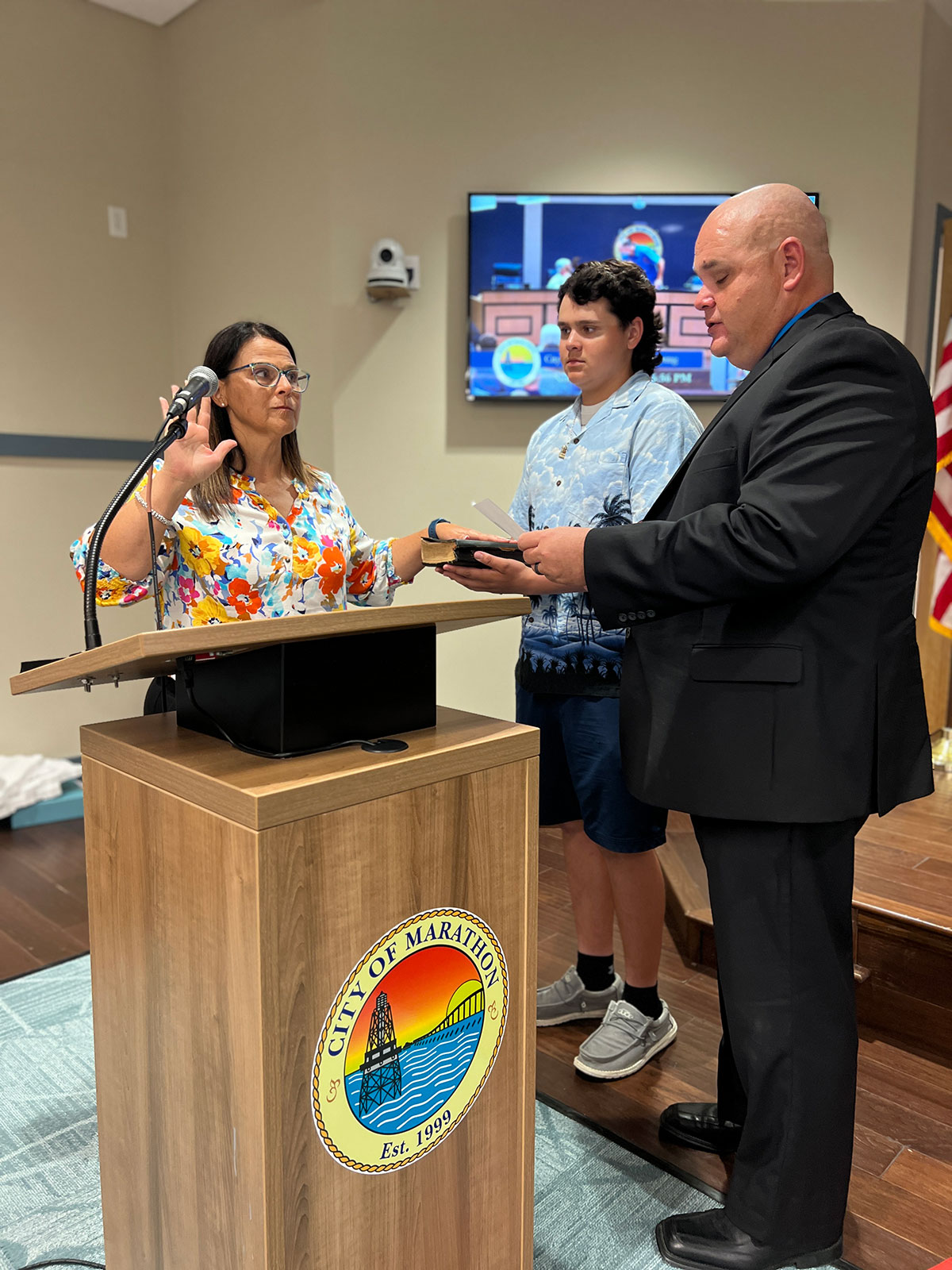
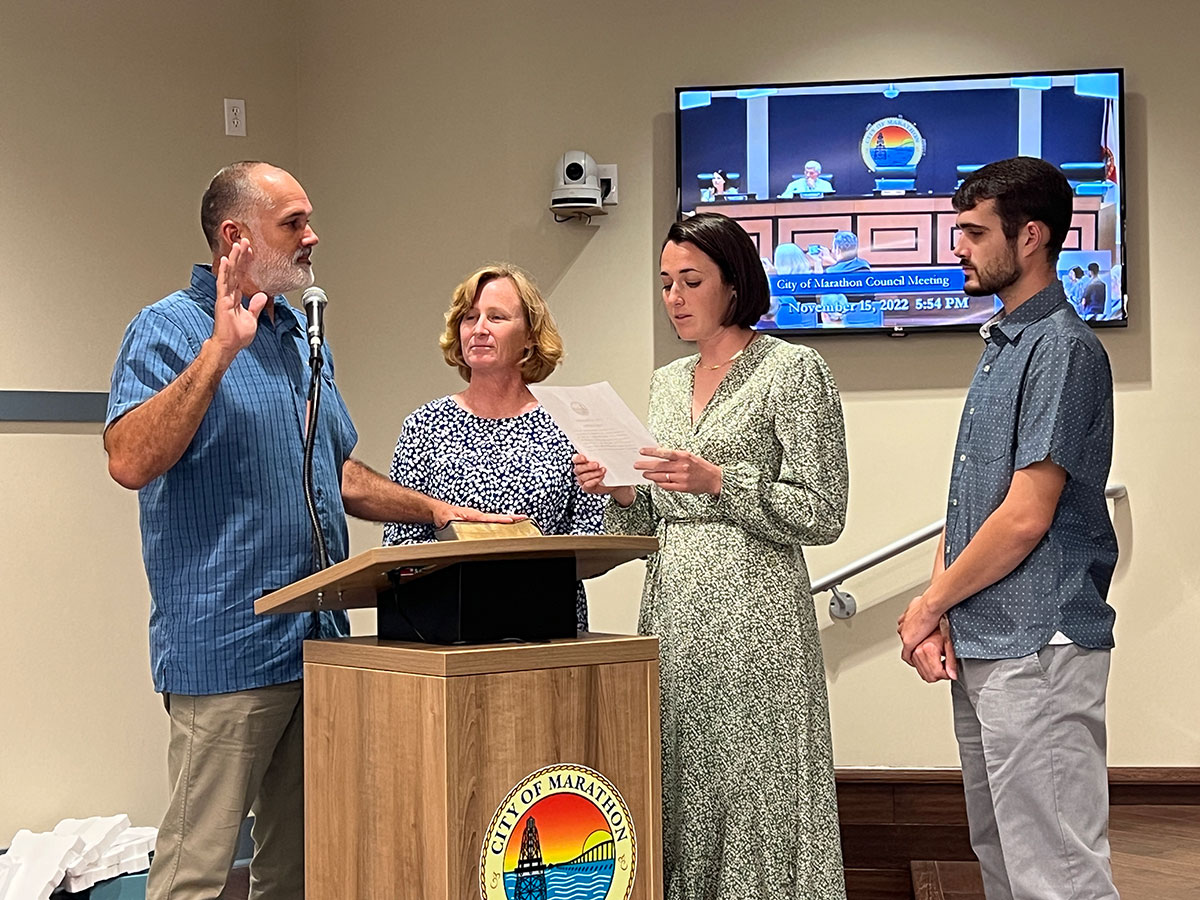

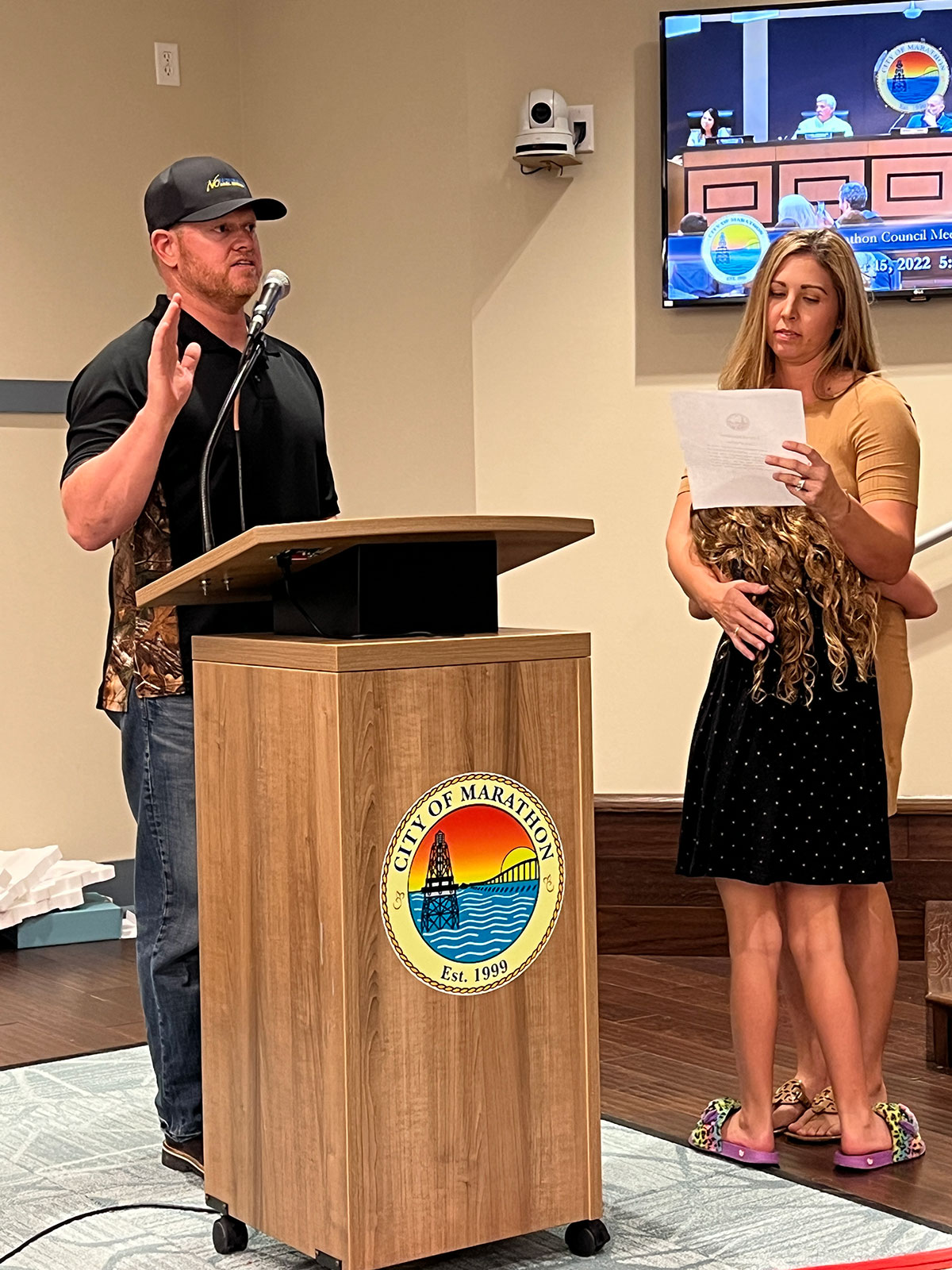
Asked by Matlock what granting the units may do to Marathon’s legal liability, city attorney Steve Williams called the possibilities “undeterminable.”
“As we currently sit as we voted in September, I would say our liability is next to none,” he said. “We’re going to move that needle a bit if this goes forward today … but that’s a weight factor you take into accord with, as put forward by the mayor, you have six families who could move into this.”
“I’ve had a few citizens reach out, and they’re wanting to know why, and this feels like favoritism,” said Matlock.
Williams cautioned the council to be clear, if so desired, in its reasoning for granting the units: as stated by Landry and confirmed by planning director Brian Shea, the La Palma units were the only recipients of the 300 affordable housing allocations that had pulled permits, broken ground, and failed to receive their Certificates of Occupancy, before the DCA opinion.
“Everybody in the city talks every day about the lack of affordable housing in this community, but yet everybody wants to say favoritism,” said Landry. “At the end of the day, it’s about putting families in homes.”
In a 4-1 vote, with Matlock as the lone no vote, the council voted to grant the six allocations, on the condition that they would be used only for affordable housing and would be returned to the administrative relief pool if and when the original 300 affordable units are returned to Marathon.
In Other News:
- Shea and grants coordinator Maria Covelli announced the creation of a City Watershed Management Plan funded by FEMA’s Hazard Mitigation Grant Program. Once adopted, the plan is anticipated to move Marathon from a Class VI to a Class V status in the Community Rating System (CRS), a program used to determine discounts on flood insurance. The move to Class V should result in an additional 5% discount on flood insurance for Marathon homeowners.






















